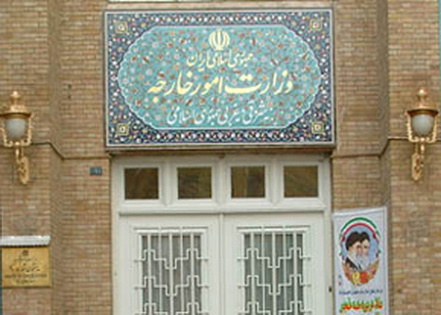What Transpires at the Foreign Ministry

I do not intend to deny the hard work being done by the experts currently working at the Foreign Ministry. What I mean is that the Foreign Ministry did not train new experts before forcing its elite forces into retirement, and it was therefore forced to employ individuals who had no great or valuable experience in international affairs.
On the other hand, the Foreign Ministry has no global perspective or strategy for international and regional affairs. In reality, this ministry has been transformed into an institution that only goes through daily and reaction-based activities. This means that when any event takes place, the Foreign Ministry then starts to think about the issue and decides whether to take a specific stance based on what has happened or not. They are ignorant of the fact that the Foreign Ministry should be a lookout for the country and should track regional and international developments with a bird-eye's view, identifying the challenges and opportunities and making short-term, middle-term, and long-term plans based on these issues.
In recent years, the Foreign Ministry has unfortunately only acted based on case-by-case reactions, and we have never seen any initiative or planning in these reactions. I mean that any time other parties have taken any action, the Foreign Ministry has either kept silent or shown an inappropriate reaction.
A recent example of such behavior is how the Foreign Ministry reacted to news of the execution of Iranian citizens in Saudi Arabia. Regardless of whether these individuals committed any crimes or not, the Foreign Ministry and its consular division knew beforehand that these Iranians were being held by the Saudi regime. Therefore, it was the Foreign Ministry's responsibility to provide lawyers for these Iranian citizens in order for them to be able to defend their rights, as was their right based on international law and conventions.
However, the Foreign Ministry unfortunately showed so much naiveté in this regard that these Iranian citizens were executed without any trial.
I believe that if the Foreign Ministry had taken a position on this issue beforehand, and had protested and made a claim in international councils, the Saudi regime might not have dared ignore international law and conventions, including the consular rights convention.
Regarding issues that exist in international relations, the behavior of the Foreign Ministry also shows that they have no pre-specified plan to deal with these issues and developments.
On one hand, the Iranian parliament suggests reducing relations with a certain country, and on the other, the Foreign Ministry spokesman makes a completely different statement. This shows that we are faced with a type of non-coordination, one which will hurt the system more than it will individuals, and one which might weaken our ability to maintain our rights as a nation.
I hope that our Foreign Minister Mr. Ali Akbar Salehi pays attention to these weaknesses by making use of the experience of experts who were unjustly put aside, and will truly utilize the valuable experiences of these hard-working diplomats in practice, not just for the sake of it.
We currently have unclear, if not undesirable relations with all our neighbors. It is not clear how a country we welcome with open arms and consider as our friend and brother suddenly turns into a Zionist agent in 24 hours and the way we address it makes a 180 degree change from what had been said 24 hours before.
This is a sign of confusion in our foreign policy, despite the fact that we should have a civil policy based on the three principles of honor, wisdom, and expediency, based on which we need to move forward.
The Foreign Ministry's confusion and ineffectiveness is due to the fact that it is not independent in making expert decisions. This issue is catastrophic for the Foreign Ministry, where, instead of relying on expertise and transferring expert information to higher-ranking officials, it only repeats what others want it to say.
I believe the Foreign Ministry needs to have expert analysis on each and every topic and report the results to the officials involved, providing the opportunity to act based on a decision that is in the interests of the country.
If one of these said officials is in a position where they cannot identify our current national interests, the Foreign Ministry can no longer stay silent and decide to act based on a decision made by Mr. X or Y, but it should rather act based on expert research and analysis.

